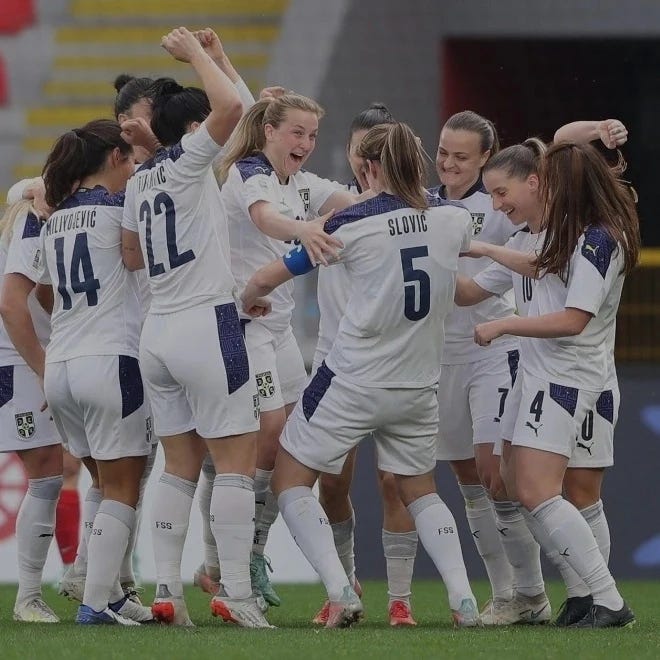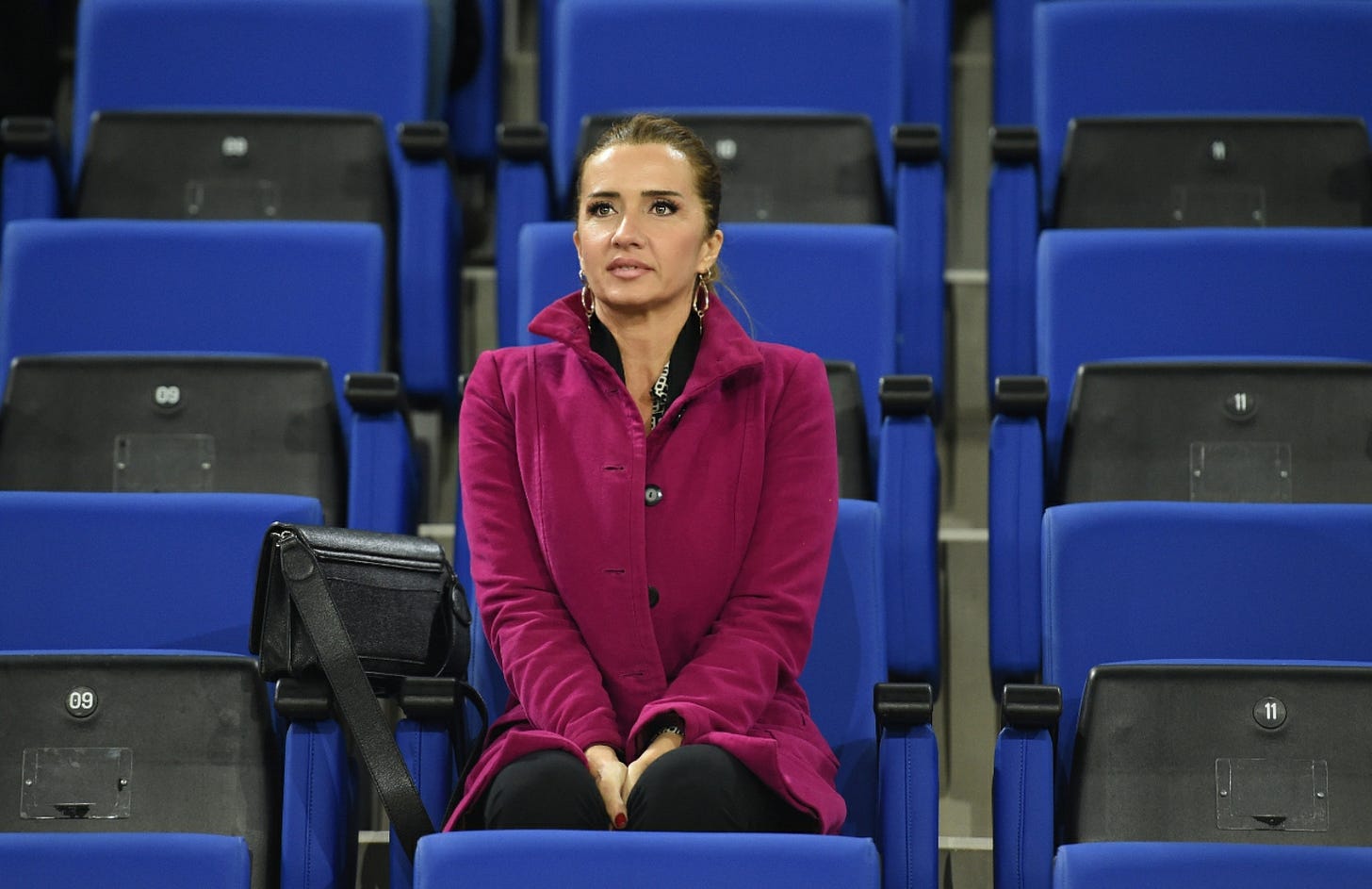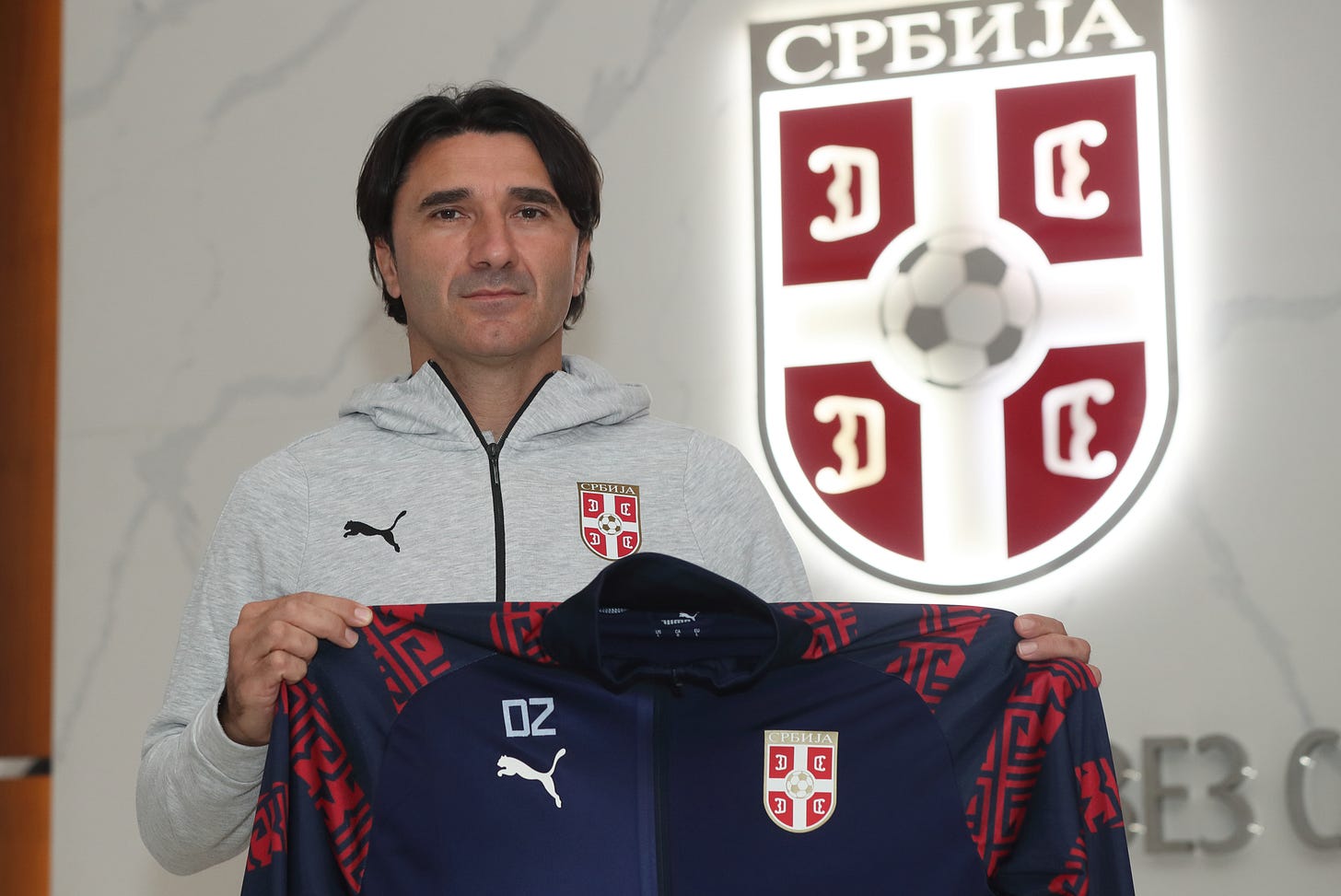Road to 2027: Serbia has all the potential to go far
Having just missed on a World Cup play-off, Serbia is one of the fastest improving teams in European football, and WFC went deep inside the programme to find out why.
“Back then, we had maybe two or three players playing abroad, we would only send invitations to a couple of clubs. Now we send to anything between 16 and 19 different places,” says Bojana Veselinović, the team manager of the Serbia women’s national team.
She is laying bare the stark differences between the nation’s last attempt to qualify for a World Cup in 2019 and the one just passed which saw them miss out on a play-off spot in the final game of the qualifying stage against Portugal
Four years previous, Serbia took just seven points from eight games, losing five of their matches, but now they are revolutionised, and like Veselinović says, have top players all around Europe - including Chelsea and Bayern Munich.
“We are losing good players, so our domestic league is not such a good league because we lose the best players,” she admits. “But they have the possibility to upgrade everything they know. There are two sides to the story. For the domestic league? Not good. But for the players it is much better.”
To truly chart the immense progress Serbia has made in the women’s game you have to go back sometime, but gone are the days of their heaviest defeat – 9-0 against Switzerland – less than 10 years ago.
Veselinović became the team manager six years ago and with it became the main contact for women’s football in Serbia, as well as the development manager.
As she puts it, she is “responsible for all kinds of problems”, but has played an influential role in moving the game forward.
“For the last five to seven years we started to develop women’s football from the bottom, from development tournaments at under 15 level to have a base for the future,” she says.
“That was the start, and the last two years since we got the new Director of Women’s Football [Bojan Pavićević]. He is the Head of Women and Futsal departments. He was someone completely out of women’s football, but since he came he fell in love with women’s football. He said there is no passion like in women’s football.
“He started to believe in the team, in women’s football and besides this he’s a member of our executive committee, which is important. He was pushing for investment in women’s football and that is the first reason we have made such progress. The girls feel like they are representing now, they are taken care of, someone wants them to do well. They feel really important now.”
Serbia came so close to having a chance to qualify for a first major tournament, losing 2-1 to Portugal in the final game, a winner takes all encounter, after they’d led 1-0.
Their campaign though included remarkable highs like beating eventual European finalists Germany 3-2, something which Veselinović admits would have only been a “fantasy” a few years ago.
Check out more in-depth unique stories in WFC’s Premium section, available for just £45 for 12 months, paid in one go, or a £6 a month rolling subscription.
All subscriptions come with a 7-day free trial to allow you to explore our full archive.
Plus, guarantee you everything that is to come over the next 12 months…
They are working hard through their on-pitch performances to change the mindset of a nation, one firmly behind their men’s side who have become regulars at major finals, but struggling to fall in love with their women’s team.
In order to move forward, they parted with former head coach Predrag Grozdanović after the qualifying campaign and hired Dragiša Zečević, the former under 17 national team head coach, who Veselinović describes as the most “dedicated person I ever saw in my life”, and the man tasked with leading the team to Euro 2025.
“The Sporting Director called me to work with the women a few years ago,” says Zečević. “I had worked in the men’s game in the top division, but I started working with the under 17s and spent five years doing that.
“In that time, I built some plans, got good results and we got a lot of players into the senior team. The progress is incredible. We have built a good base from the youth team through to the senior team. A lot of players have gone abroad, as you know. They play in Norway, in Spain, in Germany, in England etcetera. Their individual careers are growing and that is helping us. Six years ago, we had about 1,000 women players in Serbia, now we have around 3,000. Nina Matejić was in the top 10 young players in the world and she’s only 17.”
Matejic, of Serbian club Crvena Zvezda, is one of the nation’s brightest young talents and looks set to be another who will find a big move abroad and is another marker point of Serbia’s progress in developing players over the past few years.
For the first time, they have two players in England’s Women’s Super League after Dejana Stefanović joined Brighton & Hove Albion in January, joining Jelena Čanković who signed for champions Chelsea last summer.
Their talismanic striker Jovana Damnjanović plays for Bayern Munich and has done for some time, while they also have players at Bayer Leverkusen, Fiorentina and Real Sociedad, all of which is benefiting the national team.
Check out previous Road to 2027 features…
Keep reading with a 7-day free trial
Subscribe to Women's Football Chronicles to keep reading this post and get 7 days of free access to the full post archives.







